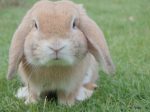Rabbit is a great pet! Rabbits are cuddly, playful, and friendly. Rabbits are also easily bond with their owners. However, rabbits need to be maintained consistently. Having a rabbit as a pet means we are committing to take care of them daily because rabbits usually need a lot of attention. It might be a little bit overwhelming for you who is a beginner owner, but don’t worry! Taking care of a rabbit is also a lovely journey. You will love your rabbit more along with the process, as long as you give your rabbit proper care and lots of affection!
What you need to know is that different types of rabbits have different personalities or characteristics, different requirements and care needs. So, if you start thinking about having a rabbit as a pet, you might want to ensure the right rabbit breeds for you first! Here’s some infromation that you need to know!
4 Things that You Should Know About Rabbit Breeds & Habits
1. Know their body size, weight, and lifespan
Knowing their adult body size, especially if you are purchasing your little friend when it is still a little bunny, might be important for you. The information about how big your bunny can grow will help you to prepare the right size of the cage for your friend. It will be their home! So you have to ensure the cage will be comfortable and spacious enough for them to hop and play around and also to put their litter tray, keep the food tray, and to keep their toys.
2. Know their proper diet plan and health concerns
Providing food is one of the essential parts. You want to make sure you only give the proper and the best food for your little friend. As for rabbits, you have to understand that rabbits are prone to high sugar levels and allergic to some type of food, so you might want to ensure their sugar intake as well. Information about the proper type of main food, treats, how often it needs to be fed, and how big or small is the portion is super important for you to know to keep your rabbit healthy and keep it out for any diseases. You can ask the pet store where you purchase the rabbit or directly go to the vet for recommendations.
3. Know their shedding time and habit
Do you know that rabbit is naturally shedding their fur several times in a year? Yes, it does! You might experience when your rabbit starting to get bald and then change its fur color during summer or winter months. This changing fur color and the shedding habits are different from each rabbit. Some of them take a full week, some others only need a few days. Knowing the habit and period of your rabbit breed will help you to prepare because when your rabbits are shedding, you have to brush your rabbit more.
4. Know their personalities and characteristics
It is obvious that you have to know your rabbit ‘deeply’. Different types of rabbits have different personalities. Some of them like something that the others hate the most. For example, some breeds love to be held or pick up, while others hate it and will try to escape whenever you try to. Your rabbit is also your family, after all, you have to understand your own family, right?
That’s all the basic stuff that needs to be concerned when you decide you want to take a little bunny to your home. The information is everywhere, though! You can easily access all of those things, so chill out! To help you even more, here is some recommendation about rabbit breeds, along with their basic information!
- The Holland Lop Rabbit
As a lop rabbit who is known for its large floppy ears, Holland lop is also super cute because it’s small like a dwarf bunny. Holland lops’ size is about 2 to 4 lbs with 7 to 14-year lifespans, which is a long, long time of commitment for you to take care of them. Although Holland lop has a small body, it is very active and energetic. It is also friendly towards humans, but don’t like to be picked up and held, so it might not be the right choice for children to pet. Holland lop usually has a broken or solid color of fur, and during summer its hair can heavily shed so you have to brush it even more. Aside from the heavily shedding hair, Holland lop does not require any extra health concerns
- The Mini Lop Rabbit
You will not be able to resist the cuteness from the round body, with thick ears, and large heads of the mini lop rabbits. The mini lop rabbits are not that ‘mini’. They are even bigger than Holland Lop rabbit with its size about 4 and a half to 6 lbs. Mini lop rabbits are cheerful, lovable and easy going. They are open to human interaction, including being pick up or held. They are also easy to train so they might be a wonderful pet if you are looking for a litter-trained rabbit. The Mini lop rabbit does not require any extra health concern but they are likely to chew random objects compared to other rabbit breeds, so you might want to be careful!
- The Netherland Dwarf Rabbit
As you can tell for the name, the Netherland dwarf rabbit is small. It is about 1 to 2 and a half lbs in size, with short and small ears. They are super cute! However, unlike the previous breeds that are friendly towards humans, this breed is shy and skittish. Netherland dwarf rabbits usually need more time to adjust being around you at the beginning, but after a lot of affection and patience, they can be friendly too! They are highly susceptible to malocclusion and better suited to a quiet environment with open space and regular exercise as well

